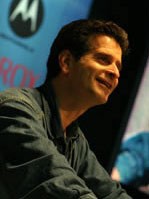How can we maintain our technological society?
- Article Published At:
- Rutland Herald
- Date of Publication:
- September 9th, 2007
We have developed an extraordinary technology-based society, full of both great promise and challenge. Consumers, businesses, and politicians love the wonders of technology; but very few understand and accept our responsibility for the consequences of our technology. Indeed, few have thought about the future: how we are going to maintain our technology and how we are going to mitigate its impacts. Moreover in the United States, relatively few students enter the fields of science and technology, because these fields demand a high level of commitment and excellence. Yet we cannot maintain our society and industry without training the next generation.
Vermont, like many other states, is having a difficult time attracting and retaining a technical work force, which is essential for the growth of local businesses. If Vermont is to have a high quality of life 20 years from now, we need more skilled scientists and engineers, with a broad vision of the society we want to create.
Perhaps there is a key to our dilemma here. One reason science may not be attractive to students is that traditionally it has avoided value questions. This is one of the strengths of science, because it allows science to preserve the objectivity and integrity of the scientific method. However, it is also one of its weaknesses from the perspective of society, because science and technology have become relentless amoral drivers of our industrial society.
In fact no one understands and accepts responsibility for the whole picture. From the development of nuclear weapons to climate change to genetic engineering, those who understand the “real world of science” are not responsible for their creations; while our ethical and religious traditions for the most part do not have the deep roots in the science of the tangible world, so they do not fully understand the march of technological human society.
The split of course goes back centuries, but now the consequences are critical for our society and the earth. Climate change is a very clear example, where the greenhouse gases from our current technological society based on fossil fuels are a threat to the earth’s climate and whole ecosystem. We need to use our technology to craft a new efficient path for society, based on renewable sources of energy, but most find it hard to understand and face such a profound change.
We need to explore these questions more deeply, because they will determine the future of our society. The Vermont Academy of Science and Engineering has invited Dean Kamen, to speak about how we can we attract the next generation to fields in science and technology. He is one of the region’s most creative inventors (famous for the Segway Transporter), and a brilliant speaker.
As an inventor, physicist, and entrepreneur, Kamen has dedicated his life to developing technologies that help people around the world lead better lives. He also founded US FIRST (For the Inspiration and Recognition of Science and Technology). More than 100,000 students have participated in FIRST sponsored technical competitions (such as the FIRST Robotics Competition), inspiring them to understand, use, and enjoy science and technology. The title of his talk is “A Technical Community – How Do We Get There from Here?” You are invited to join this discussion.
